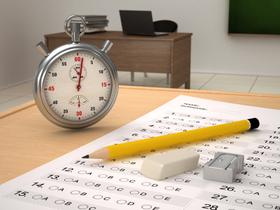Editor's note: In the following conversation, the parent is fictitious but her questions and my answers are real.
Parent: I am thinking about sending my teenage daughter to a private school for grades 9-12. How do I find the best school for her?
Rob K: Let me answer your question with another question. I know that I sound like an attorney by doing this, but I need to understand why you are thinking about sending your daughter to private school. Once you have told me your reasons, I will explain how to accomplish your goal.
Parent: My daughter's current school is OK. It's a public school which sends a large percentage of its graduates on to further education. So, that's OK. She's been with some of her classmates since kindergarten. Now I feel that she should be with other students who really want to learn. I also want her to be in smaller classes. She's one of 25 students right now. The other thing which concerns me is that the high school curriculum seems a bit thin, and is mostly focused on SATs and AP examination preparation.
Rob K: Now, you are giving me something to work with. Small class sizes are one of the main reasons most parents decide to send their children to private school. Most schools have 12-15 students per class. Your child will not just be a number in a small class. She will know everybody and everybody will know her. She will not be able to hide in a small class. The benefit of a small class is that she can express her knowledge, ideas, and opinions about the subject at hand. This dialog will build her confidence. She will also cover a lot more academic ground in an environment where her classmates want to learn. And, finally, she will prepare for standardized admissions tests such as the SATs or ACT as well as having the opportunity to take AP examinations in her senior year.
This TEDTalk discusses small class sizes from the student's perspective.
Parent: You are reassuring me about what we can expect from a private school education. But you haven't answered my question. How do I know which of the four or five private day schools in our area is the best one for my daughter?
Rob K: The short answer is you have to evaluate each school yourself. There is no ranking system for private schools for the simple reason that each school is unique. There is no other school like it. What you have to do is to look carefully at the things which matter most to you in your child's education. At the top of your list will be what's being taught and how it's being taught.
Parent: How do I find out what's being taught?
Rob K: Most private school websites will offer a detailed look at their curricula. You should be able to find that information under Academics or Curriculum. If you see no mention of SATs and AP courses, the school is most likely a progressive school which doesn't prepare its students for those standardized tests. The school's YouTube pages may also offer some insight into what the school teaches.
This video discusses the benefits of taking AP courses.
Parent: How do I find out how they teach?
Rob K: Some information about the school's teaching style and philosophy will be on its website. The most effective way of determining whether the teaching style aligns with your approach is to visit the school and observe a class. When you are at the school, don't hesitate to ask questions about the teaching. Schools are very proud of their curricula and their teachers, which, after all, are the reasons why parents like you send their children to private schools.
Parent: You mentioned SATs and AP courses before. And then you told me that some high schools don't have SAT prep and AP courses as part of their curriculum. Does that matter? Is it something I should be concerned about?
Rob K: Many parents feel that the best way to get into college is to offer high scores on the SAT or ACT examinations. High scores on the AP or Advanced Placement examinations provide tangible proof that a student is ready for college-level academic work. Many parents like that approach to preparation for college because that's how they prepared for college. But you have other options, one of them being to send your daughter to a progressive school. If you have a Waldorf school in your area, I encourage you to explore the possibilities a Waldorf education offers. We sent our eldest daughter to the Waldorf School in Garden City, New York, and were very happy with the experience. There are other variations of the progressive approach to education. Whether you choose a standard college preparatory school or a progressive school depends entirely on what you feel is the best approach for your child.
Parent: My mother-in-law is very enthusiastic about a Christian school in our area. She feels that our daughter should receive a Christ-centered education. I know nothing about Christian schools. I don't go to church. What should we do?
Rob K: I'm not going to stir the pot here, but would gently remind you that you know your child better than anybody. Check out the Christian school as well as a couple of other denominational schools such as Friends (Quaker) and Roman Catholic schools. You won't know whether they are a good fit until you do some research and visit schools. By the way, did you notice that I used the phrase "good fit"? The fit with the school and your daughter trumps just about every other consideration. Keep that in mind as you explore and visit schools. Get the fit right, and you will have a very happy daughter. That's all that matters.
In this video a student describes what it is like to attend a Christian school.
Parent: One final question, Rob. How long does it take to find the right private school? A couple of months or more?
Rob K: Honestly, finding the right private school for your daughter is a major project which I advise you to begin at least 18 months before the first day of school. So, for example, if you are looking at her entering 9th grade, then start the process in January of her 7th-grade year.
Questions? Contact us on Facebook. @privateschoolreview




















